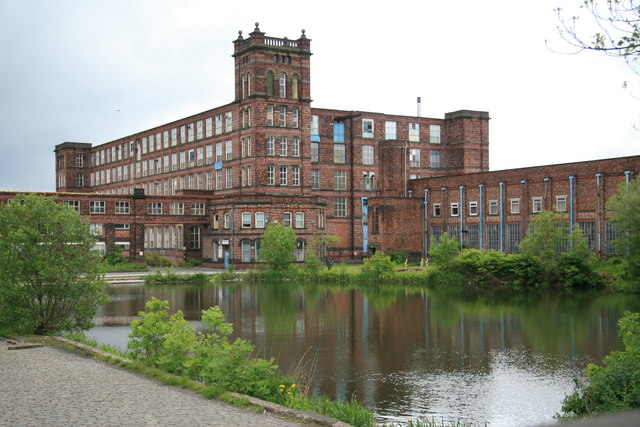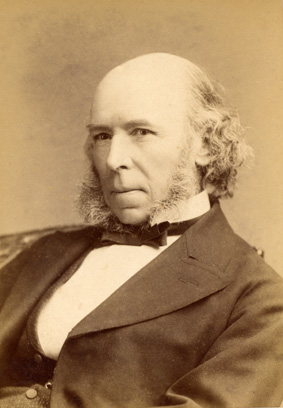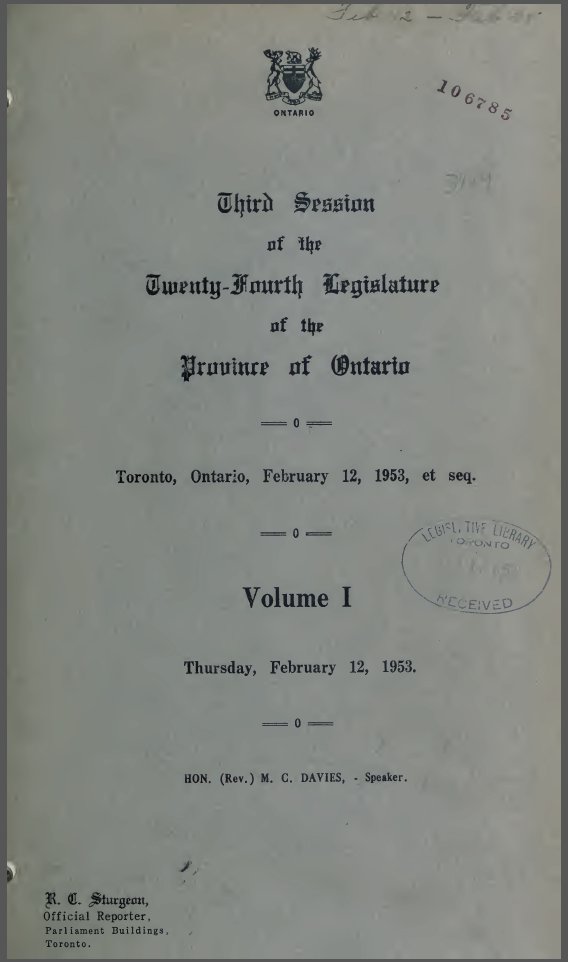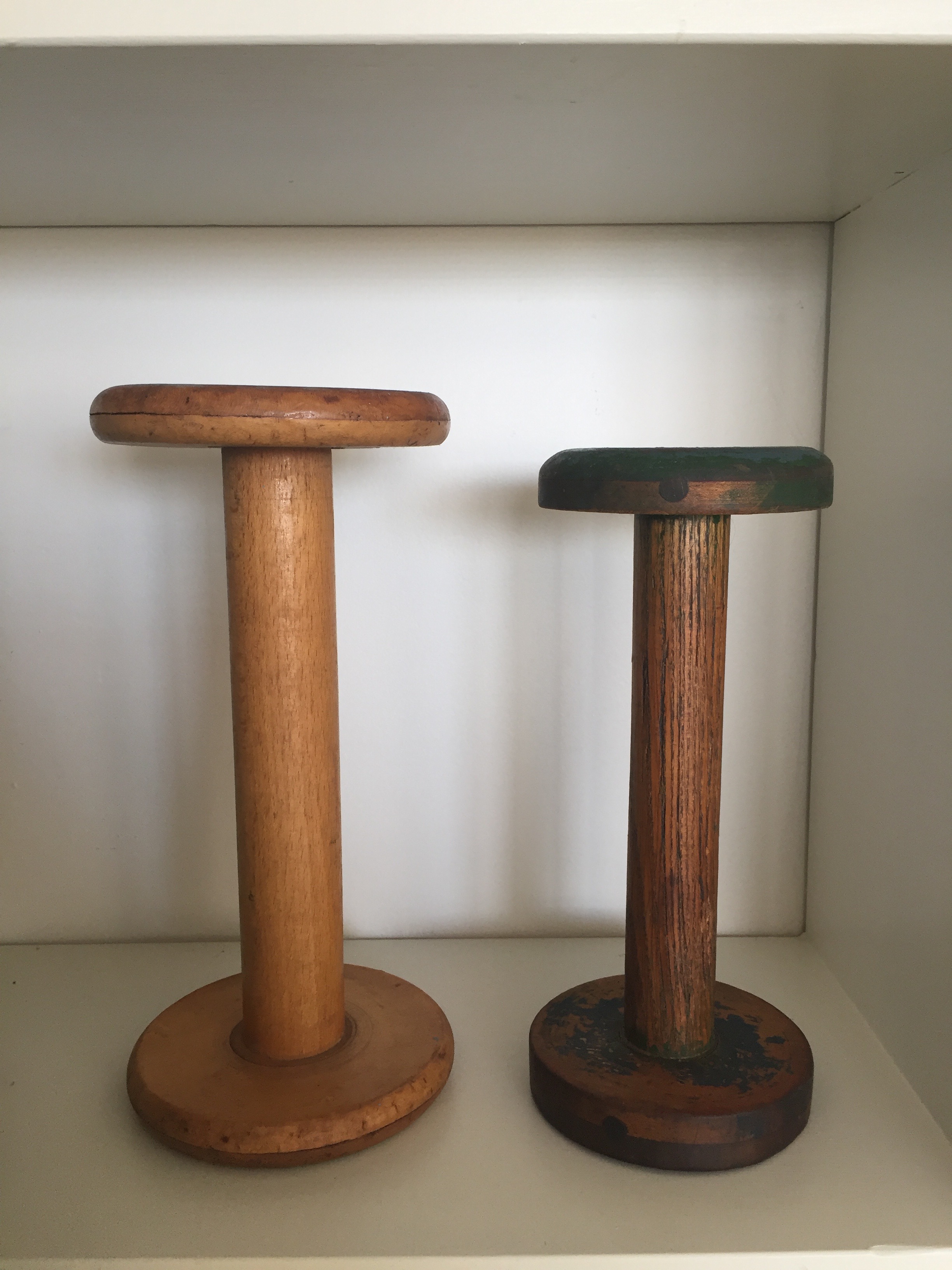|
James Duckworth (businessman, Born 1840)
Sir James Duckworth (14 February 1840 – 1 January 1915) was a self-made English businessman from Rochdale, Lancashire who rose from poverty to start a large chain a grocery shops known popularly as "Jimmy Duck's" and entered politics as a Liberal. He served three times as Mayor of Rochdale, and was elected twice as a Member of Parliament (MP). Early life Duckworth was born on 14 February 1840 at Balladin Brook, near Haslingden, Rossendale, Lancashire. His father Ralph was a poor weaver who had been the youngest of fourteen children, and found work in Rochdale. In his autobiography, Duckworth recorded that three weeks after his birth his mother carried him in her arms to join her husband, "begging her way over Ashworth Moor". Ralph's father died when James three years old, who as the eldest of three sons was set to work at the age of six-and-a-half as a doffer in a cotton mill. He worked half-time until the age of eleven, when he began full-time work, (The doffer's job w ... [...More Info...] [...Related Items...] OR: [Wikipedia] [Google] [Baidu] [Amazon] |
Member Of Parliament (United Kingdom)
In the United Kingdom, a Member of Parliament (MP) is an individual elected to serve in the House of Commons of the United Kingdom, House of Commons, the lower house of the Parliament of the United Kingdom. Electoral system All 650 members of the UK House of Commons are elected using the first-past-the-post voting system in single member United Kingdom Parliament constituencies, constituencies across the whole of the United Kingdom, where each constituency has its own single representative. Elections All MP positions become simultaneously vacant for elections held on a five-year cycle, or when a snap election is called. Since the Dissolution and Calling of Parliament Act 2022, Parliament is automatically dissolved once five years have elapsed from its first meeting after an election. If a Vacancy (economics), vacancy arises at another time, due to death or Resignation from the British House of Commons, resignation, then a constituency vacancy may be filled by a by-election. Un ... [...More Info...] [...Related Items...] OR: [Wikipedia] [Google] [Baidu] [Amazon] |
Politician
A politician is a person who participates in Public policy, policy-making processes, usually holding an elective position in government. Politicians represent the people, make decisions, and influence the formulation of public policy. The roles or duties that politicians must perform vary depending on the level of government they serve, whether Local government, local, national, or international. The ideological orientation that politicians adopt often stems from their previous experience, education, beliefs, the political parties they belong to, or public opinion. Politicians sometimes face many challenges and mistakes that may affect their credibility and ability to persuade. These mistakes include political corruption resulting from their misuse and exploitation of power to achieve their interests, which requires them to prioritize the public interest and develop long-term strategies. Challenges include how to keep up with the development of social media and confronting biase ... [...More Info...] [...Related Items...] OR: [Wikipedia] [Google] [Baidu] [Amazon] |
Heywood, Greater Manchester
Heywood is a town in the Metropolitan Borough of Rochdale, Greater Manchester, England, in the historic county of Lancashire. It had a population of 28,205 at the 2011 Census. The town lies on the south bank of the River Roch, east of Bury, southwest of Rochdale, and north of Manchester. Middleton lies to the south, whilst to the north is the Cheesden Valley, open moorland, and the Pennines. The Anglo-Saxons cleared the densely wooded area, dividing it into heys or fenced clearings. In the Middle Ages, Heywood formed a chapelry in the township, around Heywood Hall, a manor house owned by a family with that surname. Farming was the main industry of a sparsely populated rural area. The population supplemented their incomes by hand-loom woollen weaving in the domestic system. The factory system in the town can be traced to a spinning mill in the late 18th century. Following the introduction of textile manufacture during the Industrial Revolution, Heywood developed into ... [...More Info...] [...Related Items...] OR: [Wikipedia] [Google] [Baidu] [Amazon] |
Town Missioner
A town is a type of a human settlement, generally larger than a village but smaller than a city. The criteria for distinguishing a town vary globally, often depending on factors such as population size, economic character, administrative status, or historical significance. In some regions, towns are formally defined by legal charters or government designations, while in others, the term is used informally. Towns typically feature centralized services, infrastructure, and governance, such as municipal authorities, and serve as hubs for commerce, education, and cultural activities within their regions. The concept of a town varies culturally and legally. For example, in the United Kingdom, a town may historically derive its status from a market town designation or City status in the United Kingdom, royal charter, while in the United States, the term is often loosely applied to incorporated municipality, municipalities. In some countries, such as Australia and Canada, distinction ... [...More Info...] [...Related Items...] OR: [Wikipedia] [Google] [Baidu] [Amazon] |
Lancashire Cotton Famine
The Lancashire Cotton Famine, also known as the Cotton Famine or the Cotton Panic (1861–1865), was a depression in the textile industry of North West England, brought about by overproduction in a time of contracting world markets. It coincided with the interruption of baled cotton imports caused by the American Civil War and speculators buying up new stock for storage in the shipping warehouses at the entrepôt. It also caused cotton prices to rise in China, in which trade had been steadily increasing following the Second Opium War and during the ongoing Taiping Rebellion. The increase in cotton prices caused the textile trade to rapidly lose two-thirds of its previous value of exports to China from 1861 to 1862. The worldwide cotton famine also produced a boom in cotton production in Egypt and Russian Turkestan. The boom years of 1859 and 1860 had produced more woven cotton than could be sold and a cutback in production was needed. The situation was exacerbated by an overab ... [...More Info...] [...Related Items...] OR: [Wikipedia] [Google] [Baidu] [Amazon] |
Royal Marines
The Royal Marines provide the United Kingdom's amphibious warfare, amphibious special operations capable commando force, one of the :Fighting Arms of the Royal Navy, five fighting arms of the Royal Navy, a Company (military unit), company strength sub-unit to the Special Forces Support Group, Special Forces Support Group (SFSG), landing craft crews, and the Naval Service's military bands. The Royal Marines trace their origins back to the formation of the "Duke of York and Albany's maritime regiment of Foot" on 28 October 1664, and the first Royal Marines Commando unit was formed at Deal, Kent, Deal in Kent on 14 February 1942 and designated "The Royal Marine Commando". The Royal Marines have seen action across many conflicts but do not have battle honours as such, but rather the "Great Globe itself" was chosen in 1827 by King George IV in their place to recognise the Marines' service and successes in multiple engagements in every quarter of the world. The Corps has close ties ... [...More Info...] [...Related Items...] OR: [Wikipedia] [Google] [Baidu] [Amazon] |
Yeoman
Yeoman is a noun originally referring either to one who owns and cultivates land or to the middle ranks of Serfdom, servants in an Peerage of England, English royal or noble household. The term was first documented in Kingdom of England, mid-14th-century England. The 14th century witnessed the rise of the yeoman English longbow, longbow Archery, archers during the Hundred Years' War, and the yeoman outlaws celebrated in the Robin Hood ballads. Yeomen joined the English Navy during the Hundred Years' War as Sailor, seamen and archers. In the early 15th century, yeoman was the rank of chivalry between Page (servant), page and squire. By the late 17th century, yeoman became a rank in the Royal Navy for the common seamen who were in charge of ship's stores, such as foodstuffs, gunpowder, and sails. References to the emerging social stratum of wealthy land-owning commoners began to appear after 1429. In that year, the Parliament of England re-organized the House of Commons of Englan ... [...More Info...] [...Related Items...] OR: [Wikipedia] [Google] [Baidu] [Amazon] |
Survival Of The Fittest
"Survival of the fittest" is a phrase that originated from Darwinian evolutionary theory as a way of describing the mechanism of natural selection. The biological concept of fitness is defined as reproductive success. In Darwinian terms, the phrase is best understood as "survival of the form that in successive generations will leave most copies of itself." Herbert Spencer first used the phrase, after reading Charles Darwin's '' On the Origin of Species'', in his ''Principles of Biology'' (1864), in which he drew parallels between his own economic theories and Darwin's biological ones: "This survival of the fittest, which I have here sought to express in mechanical terms, is that which Mr. Darwin has called 'natural selection', or the preservation of favoured races in the struggle for life." ^ "Herbert Spencer in his ''Principles of Biology'' of 1864, vol. 1, p. 444, wrote: 'This survival of the fittest, which I have here sought to express in mechanical terms, is that which M ... [...More Info...] [...Related Items...] OR: [Wikipedia] [Google] [Baidu] [Amazon] |
Hansard
''Hansard'' is the transcripts of parliamentary debates in Britain and many Commonwealth of Nations, Commonwealth countries. It is named after Thomas Curson Hansard (1776–1833), a London printer and publisher, who was the first official printer to the Parliament of the United Kingdom, Parliament at Westminster. Origins Though the history of the ''Hansard'' began in the British Parliament, each of Britain's colonies developed a separate and distinctive history. Before 1771, the British Parliament had long been a highly secretive body. The official record of the actions of the House was publicly available but there was no record of the debates. The publication of remarks made in the House became a breach of parliamentary privilege, punishable by the two Houses of Parliament (UK), Houses of Parliament. As the populace became interested in parliamentary debates, more independent newspapers began publishing unofficial accounts of them. The many penalties implemented by the governmen ... [...More Info...] [...Related Items...] OR: [Wikipedia] [Google] [Baidu] [Amazon] |
British House Of Commons
The House of Commons is the lower house of the Parliament of the United Kingdom. Like the upper house, the House of Lords, it meets in the Palace of Westminster in London, England. The House of Commons is an elected body consisting of 650 members known as members of Parliament (MPs), who are elected to represent constituencies by the first-past-the-post system and hold their seats until Parliament is dissolved. The House of Commons of England began to evolve in the 13th and 14th centuries. In 1707 it became the House of Commons of Great Britain after the political union with Scotland, and from 1801 it also became the House of Commons for Ireland after the political union of Great Britain and Ireland. In 1922, the body became the House of Commons of the United Kingdom of Great Britain and Northern Ireland after the independence of the Irish Free State. Under the Parliament Acts 1911 and 1949, the Lords' power to reject legislation was reduced to a delaying power. The gove ... [...More Info...] [...Related Items...] OR: [Wikipedia] [Google] [Baidu] [Amazon] |
Bobbin
A bobbin or spool is a spindle or cylinder, with or without flanges, on which yarn, thread, wire, tape or film is wound. Bobbins are typically found in industrial textile machinery, as well as in sewing machines, fishing reels, tape measures, film rolls, cassette tapes, within electronic and electrical equipment, and for various other applications. Industrial textiles Bobbins are used in spinning, weaving, knitting, sewing, and lacemaking. In these practices, bobbins were invented to "manage the piles of thread and yarn that would be mechanically woven into cloth," which would have originally been wound through the use of human power, but which eventually became machine-driven. In these applications, bobbins provide storage, temporary and permanent, for yarn or thread. Historically, bobbins were made out of natural materials such as wood, or bone. While not in principle an invention of the Victorian era - bobbins in the production of textiles were in earlier use - th ... [...More Info...] [...Related Items...] OR: [Wikipedia] [Google] [Baidu] [Amazon] |
Cotton Mill
A cotton mill is a building that houses spinning or weaving machinery for the production of yarn or cloth from cotton, an important product during the Industrial Revolution in the development of the factory system. Although some were driven by animal power, most early mills were built in rural areas at fast-flowing rivers and streams, and used water wheels for power. The development of viable steam engines by Boulton and Watt from 1781 led to the growth of larger, steam-powered mills. They were built in a concentrated way in urban mill towns, such as Manchester. Together with neighbouring Salford, it had more than 50 mills by 1802. The mechanisation of the spinning process in the early factories was instrumental in the growth of the machine tool industry, enabling the construction of larger cotton mills. Limited companies were developed to construct mills, and together with the business of the trading floors of the cotton exchange in Manchester, a vast commercial cit ... [...More Info...] [...Related Items...] OR: [Wikipedia] [Google] [Baidu] [Amazon] |







